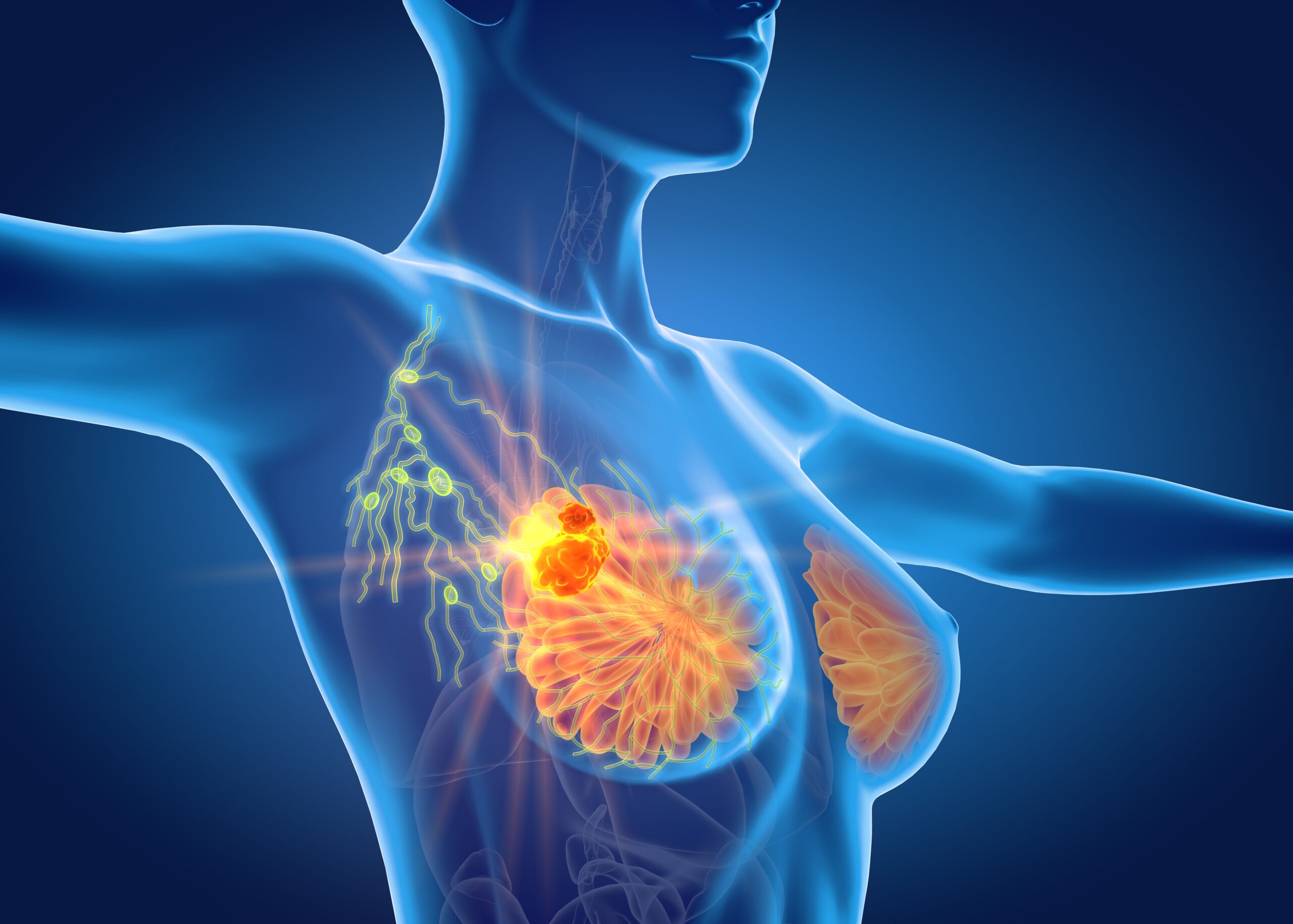Updated POSITIVE trial findings showed no significant breast cancer events in patients who breastfed following endocrine therapy for HR+ breast cancer.
There was no difference in breast cancer-related events in women who breastfed for 4 months or more after a breast cancer diagnosis, according to follow-up results from the POSITIVE trial (NCT02308085) published in the Journal of Clinical Oncology.1
A median follow-up of 22 months (IQR, 13-34) from the first live birth did not show a higher cumulative incidence of breast cancer-free interval (BCFI) events for those who breastfed compared with those who did not. The 12-month estimates of BCFI for those who breastfed were 1.1% (95% CI, 0.3%-4.4%) vs 1.9% (95% CI, 0.5%-7.5%) for those who did not. At 24 months, the rates were 3.6% (95% CI, 1.5%-8.5%) versus 3.1% (95% CI, 1.0%-9.5%), with an absolute difference of 0.4% (95% CI, –4.3% to 5.2%).
After the first live birth, 9 breast cancer events occurred in 6 of the 196 patients in the breastfeeding cohort, and 3 of the 117 patients in the non-breastfeeding cohort.
“With the limitations that the trial had a highly motivated patient and health care provider population, we found that most women who gave birth in the POSITIVE study were able to breastfeed, and that those who underwent [breast conserving surgery] predominantly breastfed from the contralateral breast. After a median follow-up of 41 months from enrollment (22 months from first live birth), breastfeeding was not associated with a higher incidence of [breast cancer-free interval] events,” Fedro A. Peccatori, MD, PhD, a medical oncologist from the European Institute of Oncology in Milan, Italy, and co-authors wrote in the paper.1
The basis of the POSITIVE trial was to determine if patients with breast cancer could pause endocrine therapy for a set amount of time, become pregnant and give birth, and restart therapy in a safe and effective way. Patients had stage I to II breast cancer, were 42 years or younger, and had received 18 to 30 months of endocrine therapy before enrollment.2
The protocol outlined that patients could have a temporary interruption of endocrine therapy for up to 2 years to allow for pregnancy, delivery, and breastfeeding. After the conclusion of pregnancy or breastfeeding, patients were encouraged to complete their 5 to 10 years of endocrine therapy as planned.
At the database lock, 497 women were evaluable for pregnancy, with 63.8% having at least 1 live birth. Of the 317, 1.2% had a bilateral mastectomy and were removed from the analysis, which left 313 patients for the breastfeeding analysis.
Overall, 46.6% of patients had a unilateral mastectomy, and 53.4% had breast-conserving surgery. The median time from enrollment to first live birth was 18 months. Within the analysis, 62.6% of patients breastfed at least 1 child.
Of the patients who breastfed their first live child, 57.7% were previously given chemotherapy, 66.3% breastfed after breast-conserving surgery, 69.2% breastfed from the contralateral breast, 29.2% breastfed from both breasts, and 1.5% breastfed from the attached breast only. Forty patients breastfed from the affected breast, and 85.0% had previously received radiation therapy.
For those who underwent breast-conserving surgery, the frequency of breastfeeding was higher compared with those who didn’t (77.8% vs 45.2%), had no previous children (66.4% vs 48.5%), and were at least 35 years old (67.6% vs 55.7%). Additionally, women who were from Asian/Pacific/Middle East had a higher frequency of breastfeeding at 85.7% compared with Europe at 62.7% or North America at 51.2%.
The median duration of breastfeeding for the first-on study live birth was 4.4 months (95% CI, 4.0-5.3) and lasted for at least 6 months in 37.1% of patients, 1 year in 12.8%, and 2 years in 1.5%.
In a 2023 interview highlighting initial results from the trial, Anna H. Partridge, MD, MPH, vice chair of Medical Oncology, founder and director of the Program for Young Adults with Breast Cancer, director of the Adult Survivorship Program, Eric P. Winer, MD, chair in Breast Cancer Research at Dana-Farber Cancer Institute, and professor of medicine at Harvard Medical School, said, “I think POSITIVE will open the door for more young women to say, ‘I can take a break and try to become pregnant’. At least in the short term, it appears safe. Hopefully, in the long term, we’ll have data that appear safe from a prospective standpoint.”
The results from this analysis build on additional data previously presented at the 2024 European Society of Medical Oncology Congress.3
References
- Peccatori FA, Niman SM, Partridge AH, et al. Breastfeeding after hormone receptor-positive breast cancer: results from the POSITIVE trial. J Clin Oncol. Published online July 9, 2025. doi:10.1200/JCO-24-02697
- Azim HA, Niman SM, Partridge AH, et al. Breastfeeding in women with hormone receptor-positive breast cancer who conceived after temporary interruption of endocrine therapy results from the POSITIVE trial. Presented at the 2024 European Society for Medical Oncology Congress (ESMO); September 13-17, 2024; Barcelona, Spain. 1814O.
- Partridge AH, Niman SM, Ruggeri M, et al. Interrupting endocrine therapy to attempt pregnancy after breast cancer. N Engl J Med. 2023;388(18):1645-1656. doi:10.1056/NEJMoa2212856
